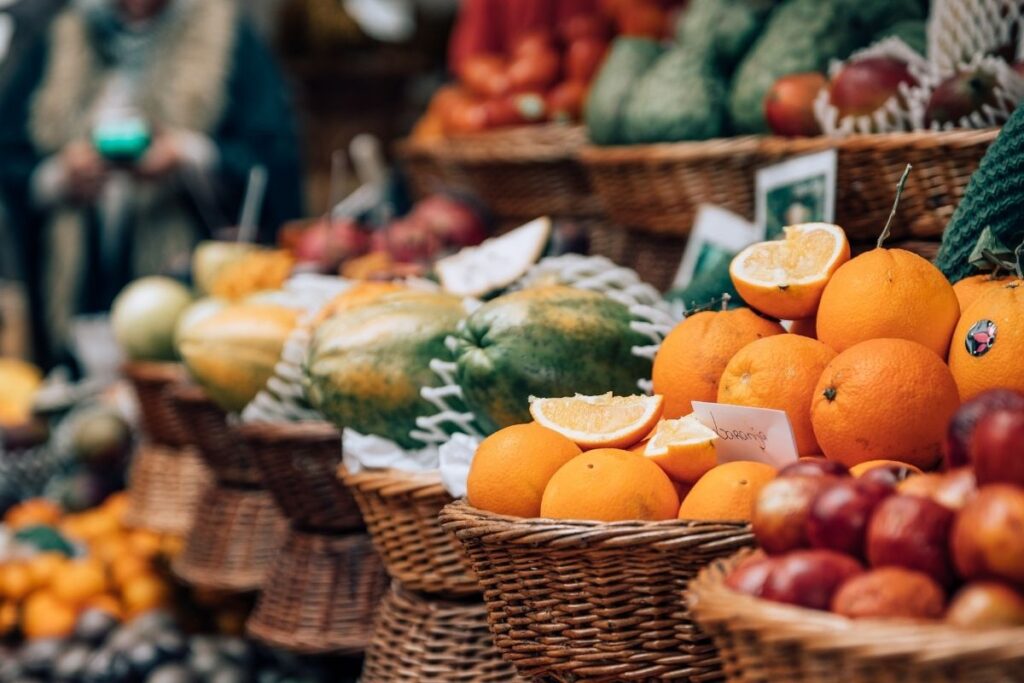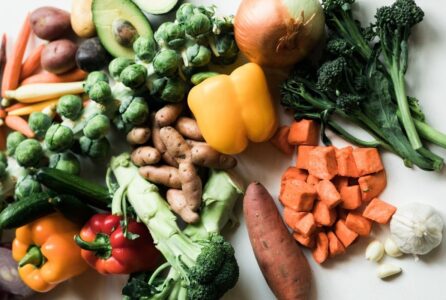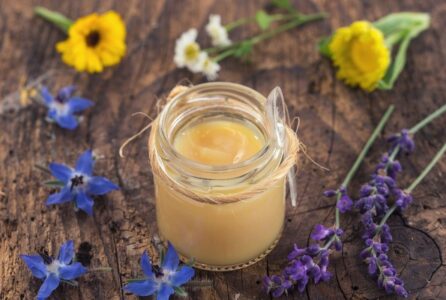Enjoying healthy seasonal foods means respecting nature's cycle and eating accordingly. In autumn, there is an abundance of fruits and vegetables rich in antioxidants to strengthen your defenses. Here is a list of seasonal fruits to take care of yourself inside and out this fall.

Seasonal fruits
Autumn brings with it the tastiest oranges and tangerines, as well as avocados, lemons, pomegranates, grapes avocados, lemons, pomegranates, grapes, pears, cherimoyas, kiwis, bananas and apples, kiwis, bananas and apples. We review the properties of each one of them and propose some recipes for and we propose some recipes for you to enjoy these fruits.
- The oranges have low caloric value, but a good contribution of soluble fiber. They contain vitamin Cwhich favors the absorption of iron from food, among many other properties. It is important to mention that they facilitate the elimination of uric acid from the body, as well as other toxic waste. Take note: to take advantage of all their properties it is better to eat them than to drink them.
- The tangerine is a great diuretic, due to its main component is water, and helps with the fluid retention. Its contribution of vitamin C contributes to the prevention of colds and flus, so common at this time of the year. A salad of mandarin, honey and mint is a first course of the most satiating and tasty, although with this fruit you can also prepare atole, jelly, jam and all kinds of cakes.
- The avocados are known for their amount of healthy fats. They help control blood pressure and cholesterol, as well as have anti-inflammatory properties. They are ideal for spreading on toast for breakfast, in salads, cold rice dishes, with quinoa or, of course, for a top-notch guacamole. But you can also prepare this delicious recipe.

- Much has been said about the lemon and its properties. It provides vitamins, eliminates toxins and is bactericidal. It contains vitamin C, potassium, good for the nervous system and the brain, and citric acid, which helps prevent the formation of gallstones. In short, a powerful antioxidant with which you can prepare countless recipes: from meat or fish to lemon, cookies, cakes, mousse, and ice cream for those who refuse to give them up even in the coldest months of the year.
- The grenades are seasonal fruits and still too unknown by most. Did you know that they are rich in minerals such as potassium? Their seeds are rich in punicic acid and the membranes and rind are rich in polyphenols. For all these reasons, pomegranate contributes to maintaining good cardiovascular health (Wang et al. Pomegranate: Constituents, Bioactivities and Pharmacokinetics. Fruit, Vegetable and Cereal Science and Biotechnology 4 (Special Issue 2), 77-87 ©2010 Global Science Books). It is an ideal fruit for salads, but also, for example, to give a different touch to guacamole.
- The grapes have a great depurative capacity. They are rich in antioxidants and, contrary to popular belief, their glycemic index is medium, not high. They also contain a lot of fiber, rapidly absorbed carbohydrates, vitamin C and many minerals, including copper, iron, calcium, phosphorus, magnesium, sulfur and selenium. They are perfect as a salad dressing, but also for recipes such as chicken with grapes and artichoke.
- The custard apple is another fruit whose perfect time to consume is November. Its main component is water, so it is very easy to digest, but it stands out for its contribution in carbohydrates, phosphoric acid and minerals such as calcium, potassium and iron. Its fiber content makes it the ideal fruit for people who need to take care of their digestive system. It also contains vitamin B1, B2 and B6, as well as vitamin C and small amounts of vitamin A.

- The main contribution of the kiwi is vitamin C. It also contains significant amounts of vitamin K, potassium, folic acid and fiber. Like all fruits, it is better to eat the kiwi whole and not liquefied, since doing so, some of its properties, such as fiber, are lost. Among its benefits is the maintenance of a good intestinal transit, contributes to a good immune system thanks to its high level of vitamin C, among others.
- The bananas are well known among athletes thanks to their high potassium content, but it is also a fruit rich in phosphorus and magnesium. In addition to these minerals, the presence of folic acid, vitamin C and vitamin B6 and, depending on the degree of ripening, some levels of fiber and sugar or others, make it a very interesting fruit this season. In toast for breakfast, banana bread, cakes, pies and cookies are just some of the recipes that can be prepared with bananas.

- Another of the seasonal fruits are the applesrich in antioxidants due to their flavonoid and polyphenol content, as well as in B vitamins (B1, B2 and B6), vitamin C, phosphorous, potassium, potassium, and calcium. Thanks to its malic and tartaric acid, it facilitates digestion. When eating them, the recommendation is that you do it without peeling them, since the skin of the apple contains pectin, which protects the intestinal mucosa.
Do you miss a fruit you can't live without in autumn? Tell us in the comments!






